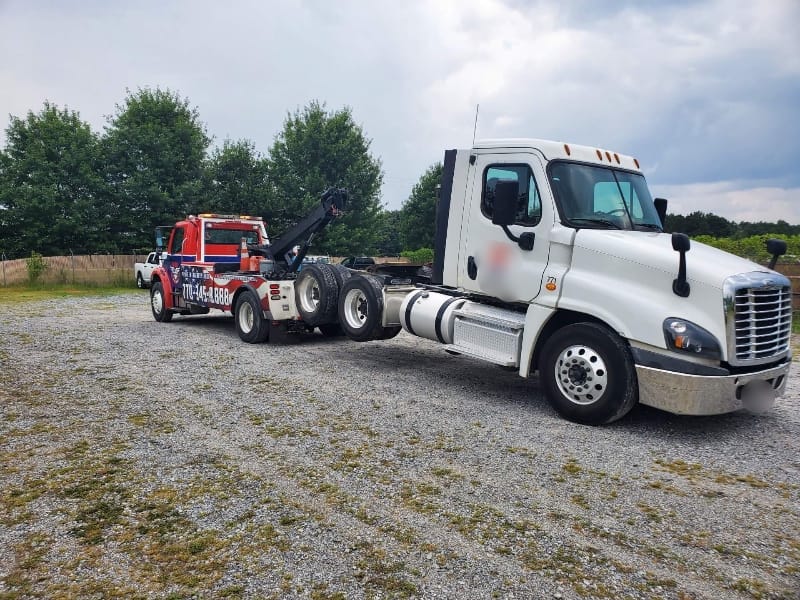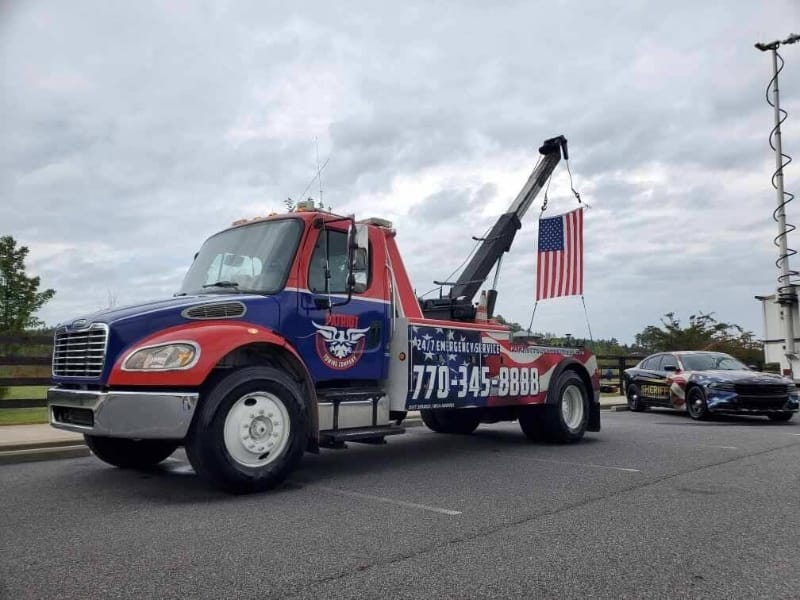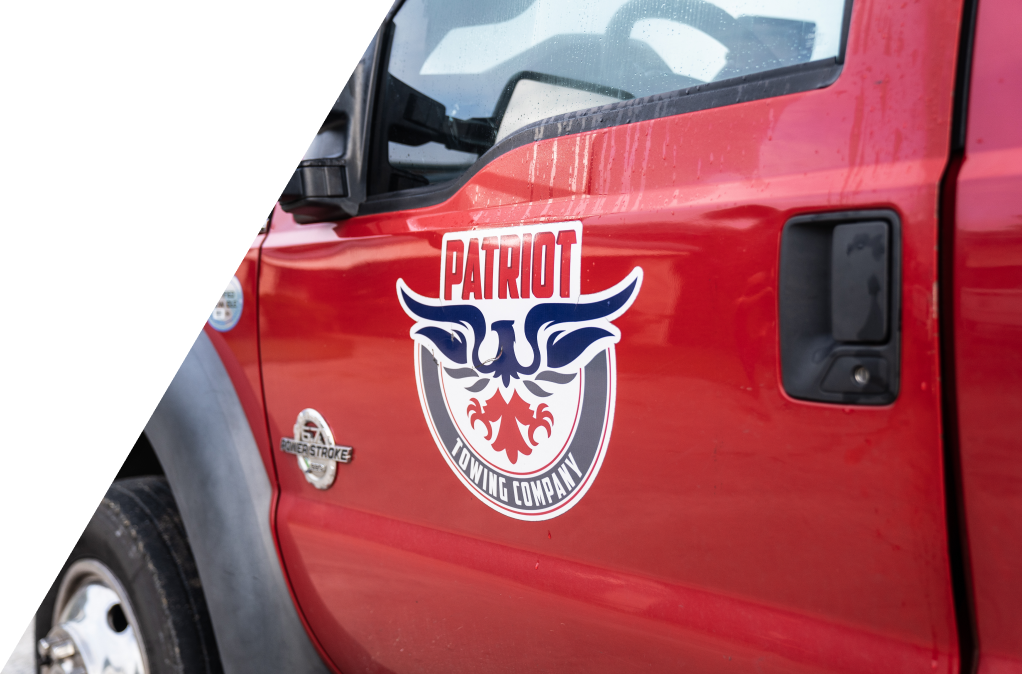
Keeping Your Rig Stable and Safe
Jackknifing is a real risk for truckers, especially in poor weather or on slick roads. When a trailer swings out of control, it not only puts the driver in danger but can also lead to massive disruptions or accidents on the highway. This terrifying event happens when the balance between the cab and trailer is lost, often due to braking issues or adverse conditions. Staying safe on the road requires preparation, quick thinking, and smart driving techniques. But how can we avoid getting to that point? Let our I-575 heavy towing experts break down the causes and, more importantly, the ways to stay in control and steer clear of this dangerous situation.

What Causes a Jackknife?
Jackknifing happens when the truck’s cab and trailer lose alignment, forming a sharp “V” shape. This occurs when the trailer pushes forward faster than the cab can manage. The imbalance can be triggered by several factors:
- Slippery Roads: Icy or wet conditions reduce tire traction, making it harder to brake effectively.
- Speeding: High speeds make it difficult to recover from sudden trailer shifts.
- Improper Braking: Locking the brakes on the trailer or cab disrupts the synchronization of movement.
Avoiding this requires preparation, awareness, and adapting to conditions.
Staying in Control
Adjusting to Road Conditions
When we drive through adverse weather, adjustments are non-negotiable. Slowing down is the easiest and most effective way to reduce risk. Lower speeds give us more time to react and reduce the chances of the trailer overtaking the cab. Remember that even the best drivers can struggle on slick roads, so caution beats overconfidence every time.
Smart Braking Techniques
Proper braking plays a crucial role in avoiding jackknifes. Avoid sudden stops and harsh braking, especially in rain or snow. Using steady, controlled pressure on brakes helps keep the trailer aligned with the cab. Trucks equipped with anti-lock braking systems (ABS) make this process smoother, but we should still practice braking with care.
When descending steep grades, shift to a lower gear instead of relying heavily on brakes. This reduces the risk of overheating and losing control.
Proactive Maintenance
Tires and Brakes
The condition of tires and brakes can make or break a drive—literally. Regular inspections of tire treads and pressure ensure adequate grip, while well-maintained brakes improve stopping power. For truckers covering long hauls, this maintenance is even more critical.
Weight Distribution
Improperly loaded cargo can also increase jackknife risks. Uneven weight creates instability, especially during sudden stops. We need to double-check load distribution before hitting the road to keep the trailer balanced.
I-575 Heavy Towing: Handling Emergencies
Even with precautions, emergencies can happen. If the trailer begins to slide:
- Ease off the accelerator. Sudden acceleration will worsen the angle.
- Steer gently in the direction of the skid. Overcorrecting can cause further instability.
- Avoid slamming on the brakes unless absolutely necessary.
If control is lost, staying calm and steering to minimize damage should be the focus.

Patriot Towing: Call Us for I-575 Heavy Towing
Despite best efforts, jackknifing sometimes becomes unavoidable. That’s when having reliable support matters most. At Patriot Towing, we specialize in I-575 heavy towing, ensuring fast response and expert handling for large-scale recovery and I-575 heavy towing operations. We know the importance of keeping truckers safe and getting them back on the road quickly.
Preventing jackknifes is about skill, but it’s about preparation and caution. But sometimes, what happens on the road remains outside of our control. Rest assured that our I-575 heavy towing is always just a phone call away. Our I-575 heavy towing team is experienced and will get can you and your truck back on track.







